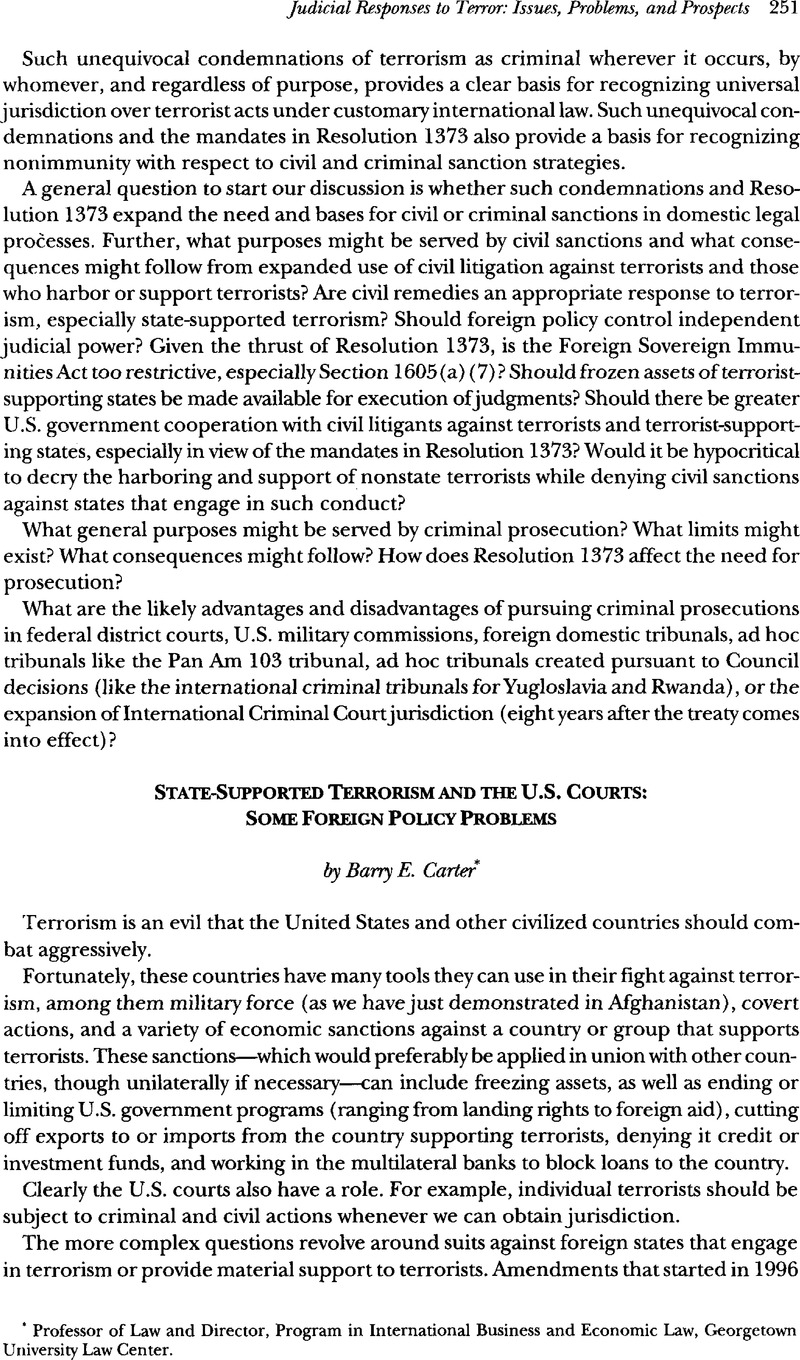No CrossRef data available.
Article contents
State-Supported Terrorism and the U.S. Courts: Some Foreign Policy Problems
Published online by Cambridge University Press: 28 February 2017
Abstract

- Type
- Judicial Responses to Terror: Issues, Problems, and Prospects
- Information
- Copyright
- Copyright © American Society of International Law 2002
References
1 Foreign Sovereign Immunities Act, 28 U.S.C. §1605(A) (7) (2002).
2 Victims of Trafficking and Violence Protection Act of 2000, Pub. L. No. 106-386, §2002, 114 Stat. 1464, amending 28 U.S.C. §§1606, 1610 note (1994 & Supp. V1999) [hereinafter Victims Act].
3 Act Making Appropriations for the Departments of Commerce, Justice, and State, the Judiciary, and Related Agencies for the Fiscal Year Ending September 30, 2001, PL107-77, §626 (Nov. 28, 2001).
4 See Dames & Moore v. Regan, 453 U.S. 654, 680-81 (1981).
5 28 U.S.C. §1605(a)(7)(B)(1).
6 Victims Act, supra note 2.
7 Pub. L. No. 104-208, §101 (c), 110 Stat. 3009-172, (1996), (codified at 28 U.S.C. §1605 note). In Hill v. Republic of Iraq, 175 F.Supp.2d 36 (D.D.C. 2001) Judge Jackson issued an order against President Saddam Hussein for $300 million in punitive damages in an (a) (7) action brought by several people who had been detained and mistreated in 1990 after the Iraqi invasion of Kuwait. The court characterized Saddam Hussein as “an instrumentality” of Iraq (and hence subject to punitive damages), but the court could also have reached the same result under the Flatow amendment.


